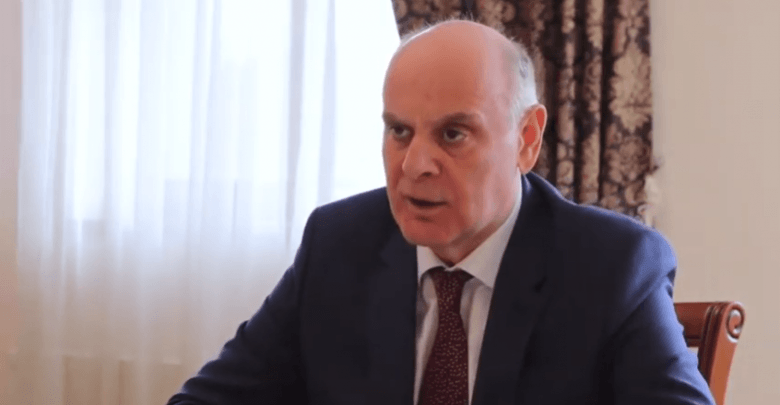
Bzhania Talks ‘Alarming’ Gap in Abkhazia Budget, Aid Withheld by Moscow
Aslan Bzhania, Kremlin-backed leader of Abkhazia, voiced his concern about the “alarming” financial situation in the region prompted by falling budget revenues at a meeting with Abkhaz assembly “deputies” on June 2.
The Abkhaz leader said that the budget revenues have halved during last months, allowing to cover only essential expenditures, such as salaries, pensions, and healthcare costs.
He noted that Russia, Sokhumi’s chief financial benefactor, has withheld assistance for infrastructure projects for six months’ time, resulting in a raft of infrastructure projects being stalled or delayed.
Additional spending cuts are expected unless Bzhania is able to secure a relief package in late June in Moscow where he is expected to attend WWII commemoration parade. Despite its own fiscal woes, he claimed, “Russia will not reduce funding for Investprogramma [Russian cash directed to construction projects],” adding that Moscow would allocate even more funds after renegotiation.
COVID-19 crisis has had a knock-on effect on the region’s economy, that largely depends on income from tourism and agriculture. Meanwhile, Moscow tightening the purse strings is equally to blame for the region’s economic plight, as Russian direct subsidies accounted for roughly half of Sokhumi’s overall revenues.
Moscow’s more frugal stance towards Abkhazia can be traced back to 2014, when the West imposed sanctions on Russia and oil revenues started to drain, argues Olesya Vartanyan, analyst at International Crisis Group, a think tank. She says the new Abkhaz leader inherited an empty budget from his predecessor in April this year and was unable to levy much of taxes and fees – as the pandemic has taken a heavy toll on local businesses.
The virus and its fallout frustrated Bzhania’s plans to diversify local economy and gain revenue streams independent from Russia. “The pandemic makes these plans more difficult to implement, at least for the time being,” Vartanyan told Civil.ge.
Aslan Bzhania also touched on the trade turnover across the dividing line, alleging “smuggling of produce worth billions of roubles” to Georgia proper. He suggested to resolve the issue not to “force locals into smuggling, which – in turn – incurs criminal liability.”
Abkhaz leader maintained that “tariffs” levied on goods transported to Tbilisi-controlled territories should instead fill Sokhumi’s coffers.
Bzhania’s appeal to “normalize” trade situation across the dividing line was perceived by some as a potential starting point for cooperation with the Georgian government. Sokhumi may indeed be interested in engaging directly with Tbilisi seeking to lay its hands on customs revenue, argues the 2018 report by the Crisis Group.
Georgian State Minister’s Office for Reconciliation and Civic Equality, overseeing the occupied regions, refrained from commenting Bzhania’s statement.
Also read:
- Aslan Bzhania on Russian Interests in Caucasus and Relations with Tbilisi
- Crisis Group Assesses COVID-19 Response in Abkhazia, Tskhinvali
This post is also available in: ქართული Русский